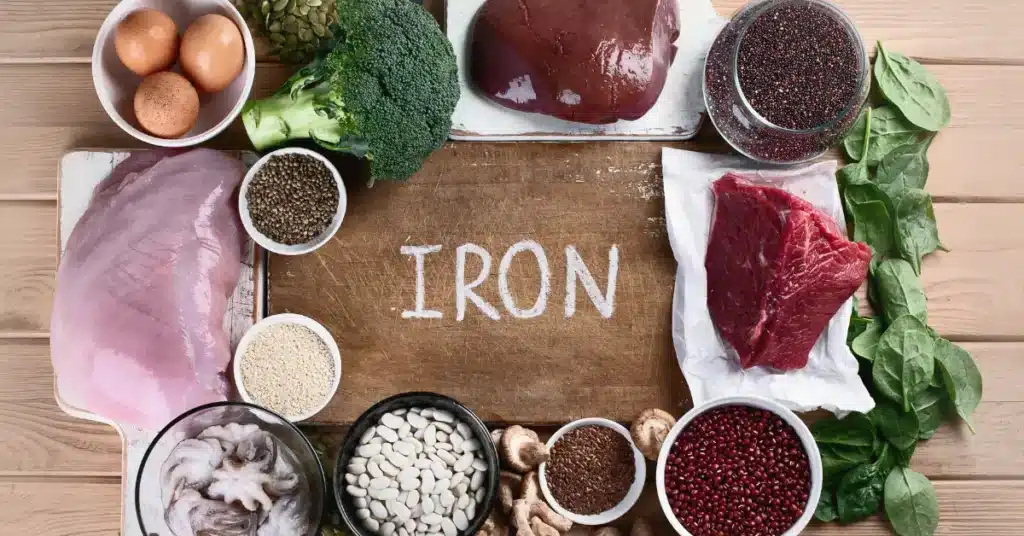Finding Relief: Treatment for Heavy Periods
Heavy menstrual bleeding, medically known as Menorrhagia, is a common concern among women.
While some degree of variation in menstrual flow is normal, excessive bleeding can lead to various physical and emotional challenges.
Fortunately, there are several effective treatment options available to manage heavy periods.
Treatment for heavy periods ranges from medications to surgical procedures.
In this article, we will explore these treatments in detail to help you make an informed decision regarding your menstrual health.
How to treat heavy periods
There are numerous treatment options for heavy periods.
A healthcare provider will recommend a treatment method based on the underlying causes, such as:
- Uterine conditions
- Blood disorders
- Pelvic Inflammatory Disease (PID)
- Thyroid disorders
- Polycystic Ovary Syndrome (PCOS)
The treatment methods can include supplements, medications, and surgeries.
Medicines
Medicines for heavy menstrual bleeding treatment include the following:
Nonsteroidal Anti-Inflammatory Drugs (NSAIDs)
NSAIDs such as Ibuprofen and Naproxen are commonly used to alleviate heavy menstrual bleeding.
These medications can reduce menstrual flow and provide relief from menstrual pain.
Iron supplements

Chronic heavy bleeding can lead to Iron-deficiency Anemia due to the loss of blood.
Iron supplements help replenish iron stores in the body, alleviating symptoms like fatigue and weakness associated with Anemia.
Birth control methods
Birth control is among the first-line treatments for heavy periods.
It can be administered in different forms:
- Oral birth control pills: Oral contraceptives can regulate menstrual cycles, making periods lighter and more predictable
- Intrauterine Devices (IUDs): Hormonal IUDs, such as Mirena, release hormones locally in the uterus, which can reduce menstrual flow and provide long-term contraception
- Vaginal ring and patch: Like birth control pills, these methods contain hormones that can regulate menstrual cycles and reduce heavy bleeding
Gonadotropin-Releasing Hormone (GnRH) medicines
GnRH agonists and antagonists are medications that affect hormonal regulation and help in treating heavy periods.
The GnRH agonist medications temporarily induce a menopausal state, reducing Estrogen levels and heavy bleeding.
GnRH antagonists are a newer option for managing heavy periods.
Antifibrinolytic medicines
Antifibrinolytic drugs, such as Tranexamic acid, help reduce heavy menstrual bleeding by preventing the breakdown of blood clots in the uterus.
They are usually taken during menstruation and can be an effective short-term solution.
Surgical procedures
Heavy periods treatments with surgery are considered when medicines are not effective. These can include:
Dilation and Curettage (D&C)
D&C is a minor surgical procedure in which the uterine lining is scraped to remove abnormal tissue.
It can provide relief from heavy bleeding.
However, there might be associated risks with this procedure.
Uterine artery embolization
Uterine artery embolization is a minimally invasive surgery that blocks the arteries supplying blood to the uterus, reducing heavy menstrual bleeding.
It is an option for women who wish to preserve their fertility.
Focused ultrasound

Focused ultrasound, also known as MR-guided focused ultrasound (MRgFUS), is a procedure that uses ultrasound waves to heat and destroy uterine tissue responsible for heavy bleeding.
Myomectomy
Myomectomy is a surgical procedure to remove uterine fibroids, which can cause heavy menstrual bleeding.
This procedure preserves the uterus and may be suitable for women who want to maintain fertility.
Endometrial ablation
Endometrial ablation is a minimally invasive procedure that destroys the uterine lining, reducing or eliminating menstrual bleeding.
It is a viable option for women who have completed childbearing.
Endometrial resection
Endometrial resection removes the uterine lining.
This surgical procedure is more invasive than ablation but can be effective in managing heavy periods.
Hysterectomy
Hysterectomy involves the removal of the uterus and is considered a permanent solution for heavy menstrual bleeding.
It is typically reserved for cases where other treatments have failed, or other health concerns necessitate it.
Natural treatment for heavy periods
In addition to medical treatments, there are natural remedies that can provide relief for heavy periods. These include:
- Dietary adjustments: Incorporating Iron and Vitamin C-rich foods can address nutrient deficiencies while reducing caffeine and alcohol intake may ease symptoms
- Herbal supplements: Some herbal supplements, like ginger, have shown potential in regulating menstrual cycles and reducing heavy bleeding
- Weight maintenance: Maintaining a healthy lifestyle through regular exercise can help balance hormones and enhance overall reproductive health
- Acupuncture: Traditional Chinese medicine, such as acupuncture, involving the insertion of thin needles into certain body points, has provided relief for some women with heavy periods
- Stress management: High-stress levels can worsen menstrual symptoms. Practicing relaxation techniques like yoga, meditation, and deep breathing exercises may prove beneficial
Takeaway
Heavy menstrual bleeding, or Menorrhagia, can significantly impact a woman’s physical and emotional well-being.
Fortunately, many treatment options are available to address this concern.
These treatments encompass medications, surgical procedures, and natural remedies.
Medications like NSAIDs, Iron supplements, and hormonal birth control methods can effectively manage heavy periods.
Surgical interventions, such as D&C, uterine artery embolization, and endometrial ablation, offer solutions when medicines prove insufficient.
Natural approaches, including dietary adjustments, herbal supplements, and stress management, can also provide relief.
It’s essential to consult with a healthcare provider to determine the most suitable treatment based on individual needs and underlying causes.
Frequently Asked Questions
How can I stop my heavy periods naturally?
To naturally manage heavy periods, consider dietary adjustments like incorporating Iron-rich foods, reducing caffeine intake, and maintaining a healthy weight through regular exercise. Herbal supplements such as ginger may help regulate menstrual cycles. Stress management techniques like yoga and meditation can alleviate symptoms. Consult a healthcare provider for personalized guidance.
How do I normalize a heavy period?
Normalize a heavy period by consulting a healthcare provider for an accurate diagnosis and treatment. Options may include hormonal birth control, which regulates menstrual flow, or medications like Tranexamic acid to reduce heavy bleeding. Address underlying causes such as fibroids or Polycystic Ovary Syndrome for comprehensive management.
What can I take to stop heavy periods?
To manage heavy periods, consult a healthcare provider who may recommend medications like Tranexamic acid, Nonsteroidal Anti-Inflammatory Drugs (NSAIDs), or hormonal birth control. These treatments can help reduce menstrual flow and regulate cycles. Surgical procedures may be considered if medications prove ineffective. Individualized care is crucial for effective management.
How to stop heavy menstrual bleeding with clots?
To stop heavy menstrual bleeding with clots, consider medical options like Tranexamic acid or hormonal birth control, which can reduce flow and clot formation. Consult a healthcare provider for tailored advice and possible treatments, including surgical options if necessary. Proper evaluation and management are essential for addressing this issue effectively.
WowRx uses only high-quality sources while writing our articles. Please read our content information policy to know more about how we keep our content reliable and trustworthy.






